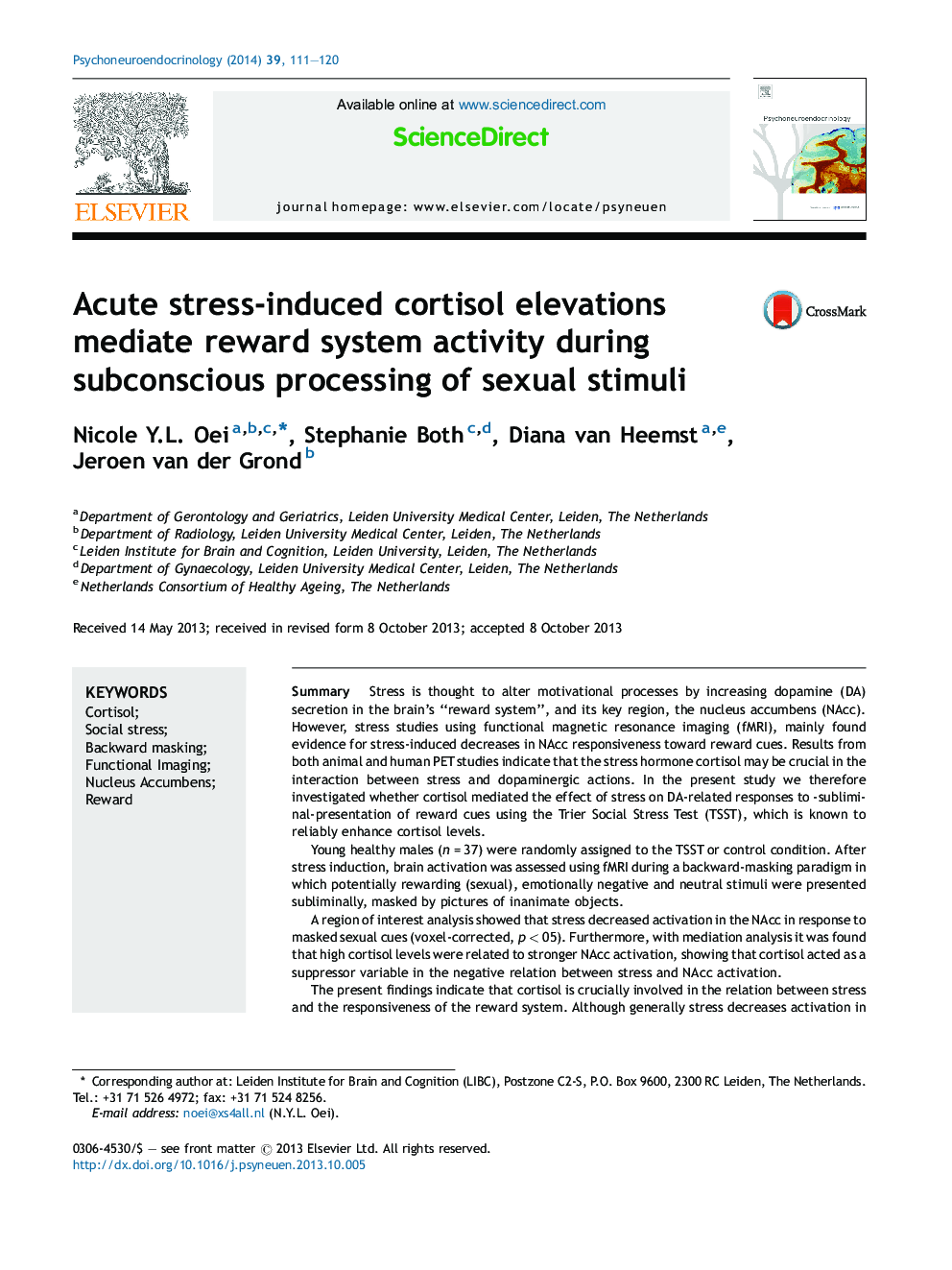| Article ID | Journal | Published Year | Pages | File Type |
|---|---|---|---|---|
| 6819904 | Psychoneuroendocrinology | 2014 | 10 Pages |
Abstract
The present findings indicate that cortisol is crucially involved in the relation between stress and the responsiveness of the reward system. Although generally stress decreases activation in the NAcc in response to rewarding stimuli, high stress-induced cortisol levels suppress this relation, and are associated with stronger NAcc activation. Individuals with a high cortisol response to stress might on one hand be protected against reductions in reward sensitivity, which has been linked to anhedonia and depression, but they may ultimately be more vulnerable to increased reward sensitivity, and addictions. Future studies investigating effects of stress on reward sensitivity should take into account the severity of the stressor and the individual cortisol response to stress.
Related Topics
Life Sciences
Biochemistry, Genetics and Molecular Biology
Endocrinology
Authors
Nicole Y.L. Oei, Stephanie Both, Diana van Heemst, Jeroen van der Grond,
